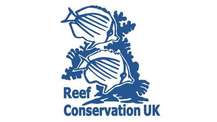Plenary Speakers
We are pleased to announce that we have two fantastic plenary speakers this year:
|
Dr Gareth Williams
School of Ocean Sciences, Bangor University, UK Gareth Williams is a marine ecologist specialising in coral reef ecology. His work focuses on the interaction of organisms with their environment, often taking a macroecological approach. He is particularly interested in how human activities and natural biophysical gradients interact to drive community patterns across multiple trophic levels (from microbes to sharks) and scales (from individual reefs to entire ocean basins). Much of his work incorporates remote coral reefs free from direct human impact, providing key replication at the unimpacted end of an intact-to-degraded ecosystem spectrum. By surveying across extensive geographical areas, his research group addresses broad questions pertaining to the human, climatic and oceanographic drivers of coral reef ecosystem structure and function. Coral reefs, the moon, and underwater obstacles All water in the ocean is connected and moving. Depth gradients around islands affect, amplify and dissipate these surface and sub-surface currents and waves, which can originate locally or from 1000's of km away and drive ecosystem patterns and processes. Disentangling local and regional physical drivers of coral reef community structure has proved challenging. Interactions between reef communities and the surrounding ocean are complex and confounded by human activities. Despite coral reef ecologists and oceanographers working hard to understand their respective fields over the last several decades, the two disciplines are historically siloed. Here I will discuss the advances we have made in understanding coral reef community dynamics by throwing some oceanography into the mix and extending the concept of ‘biological oceanography’ to ‘ecological oceanography’. This approach has revealed fascinating connections across scales between coral polyps, reef seascapes, major ocean currents, and our moon. |
|
Dr Pasita Chaijaroen
Vidyasirimedhi Institute of Science and Technology, Thailand Pasita Chaijaroen is an economist at VISTEC in Rayong, Thailand. Her research interests span environmental, health, and labour issues in Southeast Asia. In her recent works, Pasita explores the socioeconomic impacts of weather variations and coral bleaching in Indonesia as well as the effects of the change in compulsory schooling law on women in Thailand. Pasita obtained her BA in Economics from Chulalongkorn University in Thailand and her PhD in Economics from University of Washington, Seattle. Prior to her relocation back to Thailand, she was an assistant professor of economics at the College of William & Mary. How does coral bleaching affect people? Evidence from the 1998 coral bleaching in Indonesia Coral reefs are deeply connected with human livelihoods; reef deterioration can have tremendous effects on coastal communities. This talk will illustrate such effects through evidence from the 1998 coral bleaching in Indonesia. By comparing affected fisheries-dependent households to those not affected, I showed that the affected group experienced a significant decrease in income and reduced their consumption in 2000. While the affected group could eventually mitigate most of the negative effects by 2007, this adaptation took time and they could not fully offset some of the effects. The economic setbacks from coral bleaching also posed further threats to the other dimensions of the affected group’s lives. The affected women were found to increase their fertility, yet their children’s development was inferior to the other children’s. Specifically, the affected children were more likely to be severely stunted and fail a grade in school. These findings together suggest that the 1998 coral bleaching had long-lasting adverse effects on coastal communities in many dimensions. Comprehensive policy interventions are therefore needed to alleviate these negative effects and facilitate community adaptation. |



